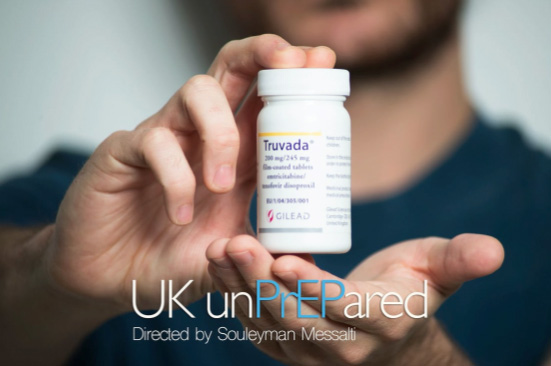UK unPrEPared: PrEPster interviews Director Souleyman Messalti about his new short film

UK unPrEPared is Souleyman Messalti’s new short documentary on the availability of PrEP in the UK. Team PrEPster was honoured to catch up with Souleyman to ask him about the reasons behind the film and his own thoughts on PrEP in England and beyond.
The film is available to view here.
What inspired you to make the film?
I was travelling in the US in 2012. I was visiting a good friend of mine who told me about a new preventive drug that had just been made available in the US and that would protect people from getting HIV; PrEP. Once back in the UK, I started researching PrEP and followed a lot of different trials. I found out that it does indeed work effectively and yet, the general public was relatively unaware of its existence – and also that it wasn’t available here. I started talking to a lot of different organisations, activists, doctors, researchers and trial participants this year and decided to make this documentary and feature the people I’d been speaking with for a while.
Do you see your film-making as being part of a political movement or process – either about PrEP access or about sexual health more generally?
Your film starts with an ACT UP demonstration outside 56 Dean Street in London. Until recently, Act Up hasn’t been out on the streets of London for almost twenty years. What have you observed about the renaissance of HIV activism?
In your interviews you faced some cynicism about PrEP. Where does that cynicism come from, do you think?
How have your views changed about PrEP since making the film?
My views on PrEP have evolved. I was relatively ignorant about the drug and the reasons behind its unavailability when I started this project earlier this year. At first, I didn’t understand why a preventive drug that had been shown to reduce the risk of getting HIV enormously wasn’t widely accessible and free of charge, I initially found that quite jarring.
Having spent the past months thinking about PrEP, what do you think needs to be happening around PrEP education?

